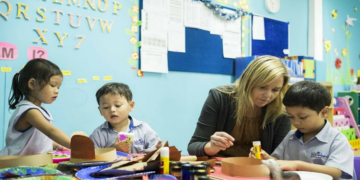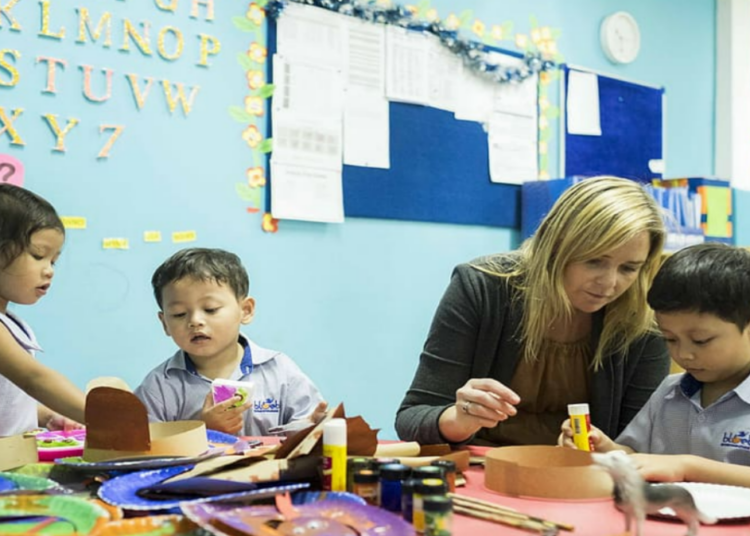Fathers and mothers are, by nature, the first and indispensable educators of their children.
It is true that, at present, quite a few of them ignore this right and duty, often without being aware that they are doing so.
And this kind of forgetfulness is understandable, due to some characteristics of the contemporary civilization, as we saw in another article.
But also because the mission of educating is not in itself simple.
It is full of seemingly irreconcilable contrasts: today perhaps more acute than at other times, but always, always for those who take on the exciting task of educating.
Although some of the problems of education respond to factors specific to our times, many others are linked to the task of education as such.
Certain oppositions that are not easy to pass
Throughout their existence, parents need to do the following:
- They must welcome and love each child as he/she is, even if at times he/she does not meet their expectations, clashes with some of their claims and convictions or even dislikes them.
- They must understand, but also demand, without giving in inopportunely.
- They must respect, love and help the children’s freedom to grow, overcoming any desire for possession and overprotection; but at the same time they must guide and correct them.
- They must help them in their tasks, but without substituting for them or avoiding the formative effort and satisfaction that performing them brings, and which strengthens their self-knowledge, their self-esteem and their ability to manage in life, without always depending on their elders.
- And, above all, they must have a lot of personal contact with each of their children: for if the diamond is only polished by another diamond, so do people only grow and improve through personal contact. Personal contact and prolonged close relationships with those who love them: even more so when it comes to their children.
As Lukas states:
“There is no substitute for parental time, for living together as a family, for inserting children into their parents’ lives.”
Hence, parents have to learn to be parents themselves, and very early on!
Just as diamonds can only be polished with diamonds, so people only improve through personal contact.
No prior training
In no profession does professional training begin when the aspirant reaches high profile positions and has very demanding or high-risk assignments on his hands:
- This is not the case in masonry, mechanics, graphic arts or design;
- It is not the case in medicine, architecture, engineering, computer science, law, military career, politics, administration or in the heart of a company.
Why should it be otherwise in the office of parents?
Perhaps because their responsibility is less than that of a conventional profession? It gives the impression that it is not, but rather the opposite: after all, to educate is to provide the means for a person to develop properly and be happy. And is there anything more important than that?
Perhaps, then, because it is more of an art than a science? Even assuming this opinion, inspiration and intuition are not enough in any art. It is also necessary to educate, train and exercise oneself, as is confirmed by artists who at first glance perform their work with little effort: the more natural the masterpiece appears to be, the more work has gone into it, even if it is sometimes a prior labor, embodied in skills or abilities.
It pays to learn how to be parents – good parents – in order to act as such.
Recipes and principles
On the other hand, learning the profession as a parent and educator does not consist of providing a set of prescriptions or solutions that are given and immediately applicable to the problems that arise.
Nor of a bunch of infallible techniques.
Such formulas and techniques do not exist.
There are, on the contrary, principles or basics of education, which illuminate the different situations. Parents should know them very well, weigh them repeatedly and internalize them, until they become the thought of their thoughts and the life of their lives: in this way, almost without any need for deliberation, they will be able to face daily practice.
And it is not an easy or comfortable task either:
- it involves a lot of attention to the children,
- much reflection and dialogue between spouses
- and a lot of sacrifice to know how to dispense with one’s own welfare, even the necessary and not capricious, when the good of the children requires it.
To put it simply: it is impossible to educate well, to do well as parents, without making a serious effort to be good parents.
Personal improvement
All of the above, as I have suggested, translates into a constant striving for personal improvement.
Only those who have developed their own personal category possess the strength and greatness to put aside their own interests and put all that is and is worth at the service of others: of the children, in this case, and of the spouse, for the children are nourished by the love of the parents for each other.
And only in this way, by putting the good of each of them before our own, will we help our children develop.
As in all other circumstances of life, our efficiency increases as we shift the center of gravity from ourselves to others:
- in the proportion in which attention, demand and interest move away from the from the self
- and focus on the person of the child, on his or her real possibilities and limits,
- so that we effectively support the former, making the most of them, and diminish the negative effect of the latter.
To educate, we must forget about ourselves and focus all our interest on the person of each child.
Translated into concrete facts
These convictions and ways of acting must be interwoven every day in favor of educational performance.
For example, a parent will effectively help his or her children if, when necessary, he or she knows how to sarifise an outing they feel like going on, or spending time in front of their favorite television program, or any other hobby. And instead, even if it costs them, they dedicate that time to play or talk to their son or daughter who needs them at that moment.
In addition, with that playtime or conversation, they will notice that their child has certain skills – he or she is good at drawing, literature or mathematics, communicates easily with others – and they can encourage them. Or, on the contrary, they will perceive that it is difficult for them to speak in public, or that they are often distracted, and they will be able to put the means, with affection and without bad manners, to make these activities easier and more pleasant for them.
By forgetting about themselves and growing as people, they will know their children better and will be in a better position to care for them.
The “you” of the loved one must always prevail over one’s own self: here is the golden rule of all educational work, of the whole of life and of true happiness!




















Discussion about this post